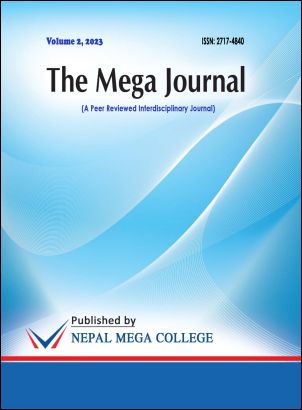Loss of Social Belongingness in Philip Roth's The Humbling
DOI:
https://doi.org/10.3126/tmj.v2i1.53207Keywords:
Social Identity Theory, Social Belongingness, Personal Self, ExisitenceAbstract
This article examines Philip Roth's The Humbling, a literary account of questions of aging and loss of self. Specifically, it analyzes the roles and actions of protagonist, Simon Axler, who has suddenly lost his talent and skills in theatrical performance and is desperately looking for salvation by indulging in temporary distractions around him. However, the loss is too deep to be complacent with. Drawing upon the protagonist’s recurring memories of the past performances that significantly govern the present struggle of Axler, the article assesses that the moments of struggle Axler recounts in the present after knowing his banal failure signal his inability to maintain social belongingness. Drawing on social identity theory, especially the three stages of social identity formation: categorization, social identification and social comparison, this article postulates an inherent and inevitable connection between social self and personal self. Following this, it argues that Axler's doomed predicament — the loss of personal self — results in eternal quest and loss of social belongingness. Finally, this article concludes that Axler’s failure to identify with the social groups is instrumental to lead him to embrace suicide as the ultimate alternative.




